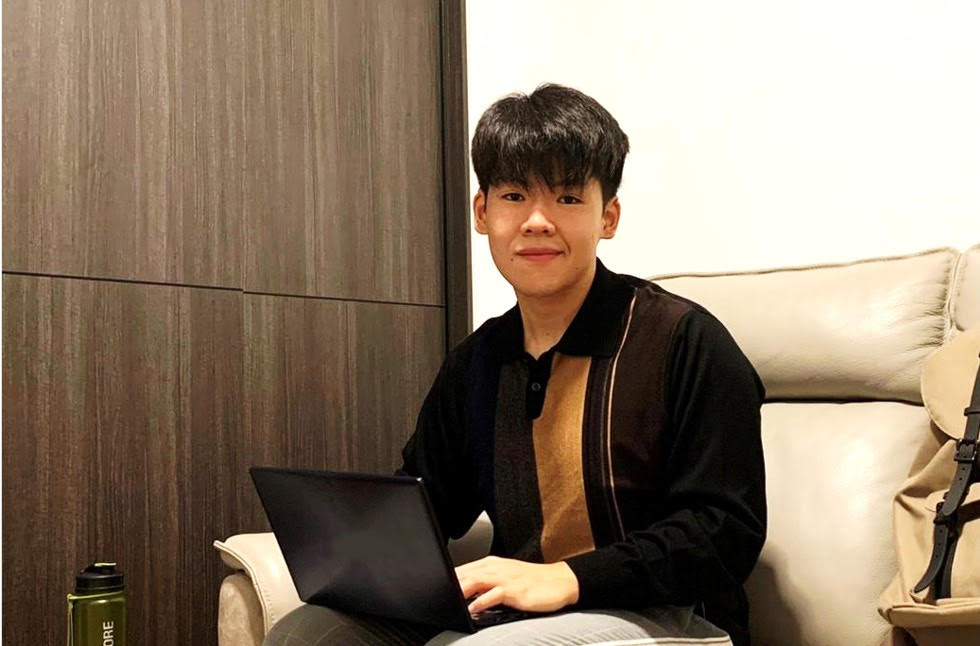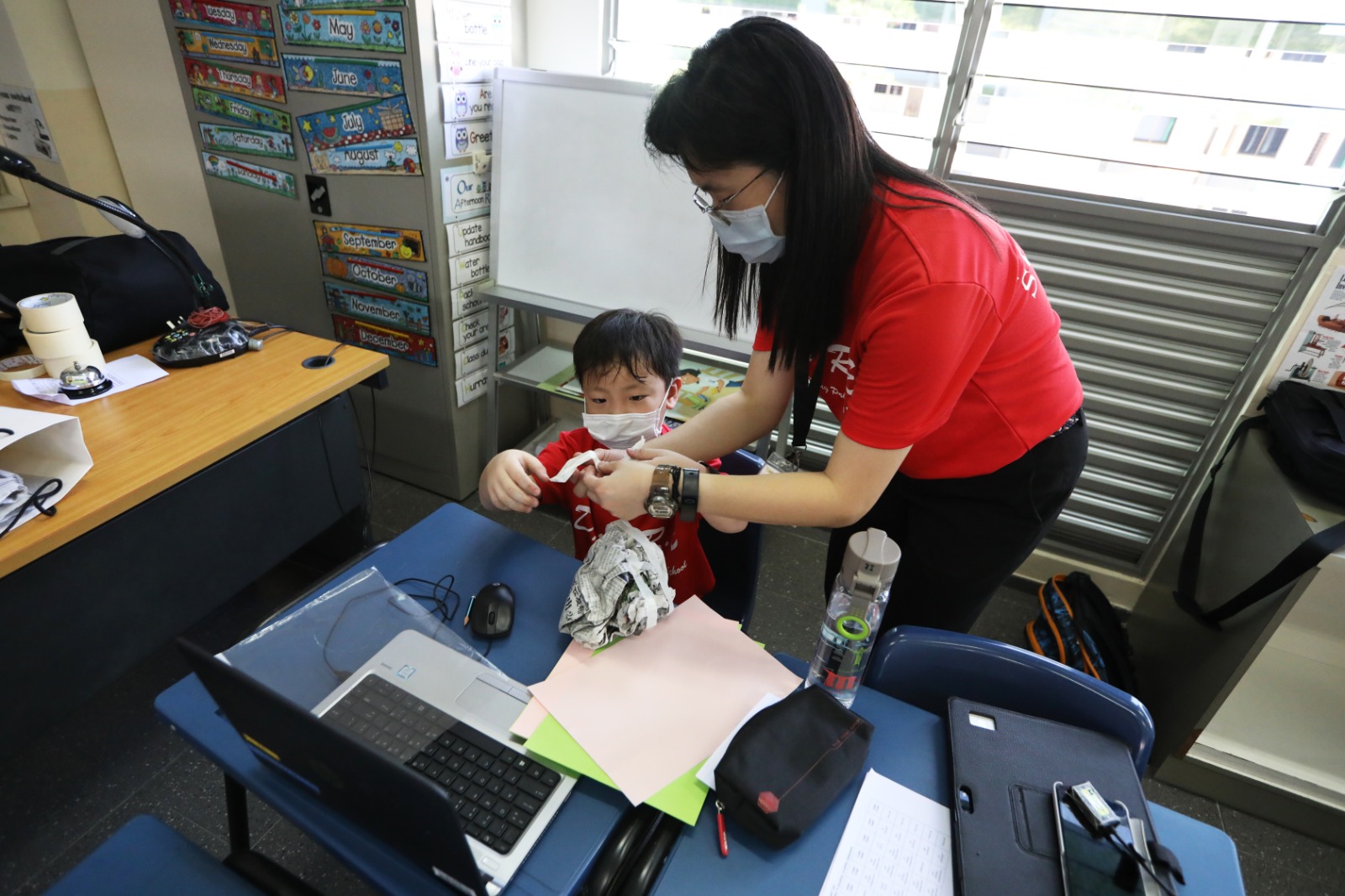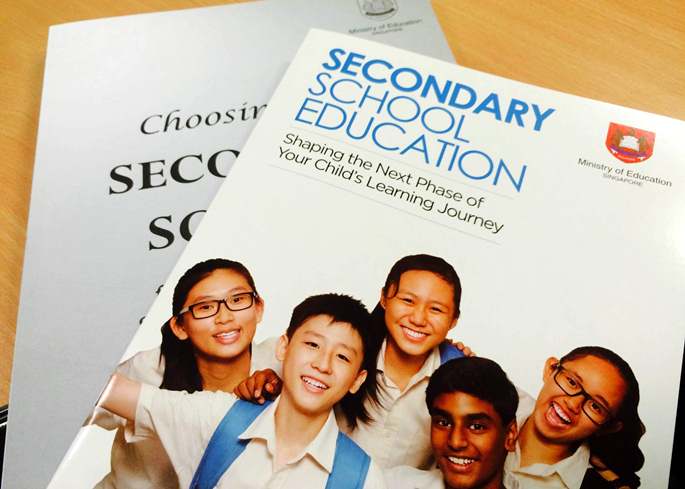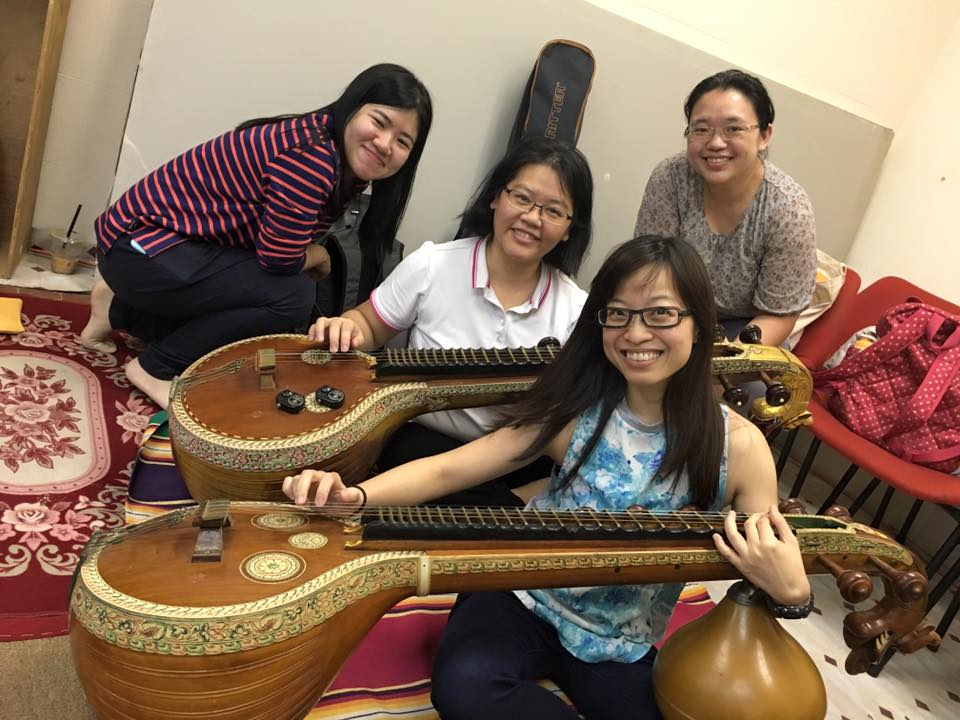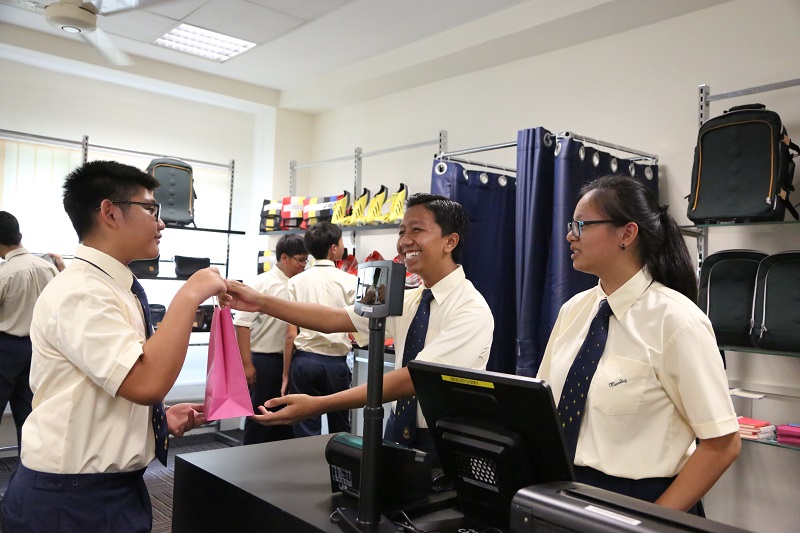Supporting Low Income Students with High Potential
12 Apr 2011

Nur Atirah (with left hand raised) demonstrates her leadership ability as she gives a briefing to her NCDCC juniors.
When you are clinging on to a rope with your legs in mid-air, a quick glance of the ground far beneath you can be unnerving. But for one afraid of heights, such as Nur Atirah bte Amir, the prospect is downright terrifying.
Yet, the Secondary 3 student from Pei Hwa Secondary did not let fear stop her from conquering the high elements of an obstacle course she braved in Perak, Malaysia. It’s an attitude that has helped the plucky student reach and juggle a growing array of leadership roles: as a student councillor as well as a future executive committee member in her CCA, the National Civil Defence Cadet Corps (NCDCC).
For students from low income families like Nur Atirah, the journey to academic and extracurricular excellence is made easier thanks to financial support from MOE’s Financial Assistance Scheme (FAS).
A chance for greater exposure
“It is very stressful for my mother to try to meet various expenses. She even works over-time,” shares Nur Atirah of how her mother has to stretch her income from working as a clerk to meet the needs of a household that also includes her brother and grandparents.
Secondary students who qualify for FAS receive a full waiver of their school fees and standard miscellaneous fees. The scheme also provides money for a few sets of uniforms including Physical Education attire as well as textbooks. “It really helps me a lot in saving money which I can use to buy stationery and exercise books,” says Nur Atirah, who also receives the Pei Hwa Bursary and additional funding from her School Advisory Committee to acquire shoes, socks and food coupons.
For some students, going for overseas learning trips is a question of when and where. For Nur Atirah, such opportunities would be unthinkable without support from FAS. Having picked up Conversational Mandarin during Secondary 1 and 2, Nur Atirah naturally jumped at the chance to go for an exchange programme with a middle school in Shenyang, China last November. “I wanted to learn the differences between the Chinese culture in Singapore and in Shenyang,” she remarks. “Through my home-stay family, I also learnt to appreciate the differences between Muslims in China and Singapore.”
Fuelling a passion for Maths

Wee Tat (second from right) crunches numbers during a modelling discussion with his Maths challenge team mates.
Like Nur Atirah, Yeo Wee Tat’s forays abroad owe much to assistance from his school, which supported his passion for mathematics through its Opportunity Fund and the Trips for International (TIE) Fund. A Sec 3 student at Ngee Ann Secondary, Wee Tat had the chance to represent his school in a Mathematical Modelling Challenge in Australia in 2010. “My dad is a taxi driver and my mom is a housewife,” he says. “With my brother and sister still in school, we do face financial hardship, so I never thought I would ever get to go overseas.”
Wee Tat relishes mathematical modelling as it allows him to “solve real life problems by using basic mathematics”. In Australia, not only did he get to work alongside new friends from different cultures, he also cut his teeth during a Mathematical Modelling Challenge when his team was tasked to determine the optimal size of a windmill blade that could generate the most energy from the least amount of wind.

For a project dealing with rides at amusement parks, Wee Tat dons a vest that records data such as force and acceleration.
“When I found out the readings were unstable because we took measurements at different distances from the fan, I panicked,” recalls Wee Tat of an unexpected discovery just before the final day of the challenge. “But eventually we completed it in quite a short time.”
Encouraged by his teachers, Wee Tat now looks forward to being a Mathematics Modelling facilitator to his younger schoolmates in July. In spite of his family’s financial state, he is glad and confident that the school has been able to open doors for him. “If you have the potential or interest to pursue anything, you don’t have to be shy about your financial situation,” he remarks. “If you need aid, the school will help you.”


